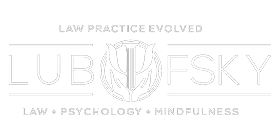Defensive and aggressive reactions to conflict most often arise because of an inability to be heard and understood. At the heart of most conflict lies some core issue that, if recognized, acknowledged, and explored, would provide the seed for peaceful, optimal resolution, truly in the best interests of the parties and more broad societal context in which they live. Often, the failure to identify and explore these core issues will keep the parties locked into a dualistic, adversarial posture that will serve to escalate the conflict.
Whether a conflict involves one spouse not taking out the trash, a neighbor making too much noise, or a violent attack by a religious faction, one party to these activities feels on some level that they are not being heard – that core beliefs or concerns that they harbor are not being sufficiently acknowledged.
Our predominant adversarial model of “justice” overwhelmingly operates in a way that allows no exploration of underlying precipitants of conflict. Attorneys are specifically trained to elicit “facts” from clients that they will then apply to the law in crafting a litigation strategy. Unfortunately, a client’s recitation of “facts” in reality often constitutes a “story,” and excludes subconscious motivations of one’s behavior.
In order to begin exploring these less salient motivations of one’s behavior, an environment must be created that fosters an air of openness, respect, and trust so that individuals can become willing to explore and articulate underlying thoughts and emotions that may have led to, or exacerbated, the conflict. The structure of a courtroom, and the nature of civil procedure and rules of evidence, are antithetical to the creation of an open environment in which litigants might otherwise feel safe in exploring more sensitive thoughts and emotions.
By contrast, among the benefits of mediation are ground rules specifically laid to establish an environment of respect. Sharply honed listening skills and ability to empathize will help an experienced mediator quickly begin to create an environment conducive to the exploration of more vulnerable thoughts and feelings of the parties. Not bound by rules of procedure and evidence, the parties can begin to articulate what is truly important to them. Often what comes to the surface are thoughts and feelings of which the parties themselves were consciously unaware. The seeds are then sewn for the crafting of a solution that can truly address the core needs of all involved.
One might say that any solution falling short of this process is really no solution at all.
To learn more about the benefits of holistic mediation, contact Holistic Lawyer and Mediator Michael Lubofsky at (415) 508-6263, or visit http://www.Holistic-Lawyer.com.
